
Balance of trade can be measured in terms of commercial balance, or net exports. Balance of trade is the difference between the monetary value of a nation's exports and imports over a certain time period. Sometimes a distinction is made between a balance of trade for goods versus one for services. The balance of trade measures a flow variable of exports and imports over a given period of time. The notion of the balance of trade does not mean that exports and imports are "in balance" with each other.
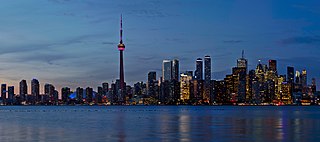
The economy of Canada is a highly developed mixed economy, with the world's tenth-largest economy as of 2023, and a nominal GDP of approximately US$2.117 trillion. Canada is one of the world's largest trading nations, with a highly globalized economy. In 2021, Canadian trade in goods and services reached $2.016 trillion. Canada's exports totalled over $637 billion, while its imported goods were worth over $631 billion, of which approximately $391 billion originated from the United States. In 2018, Canada had a trade deficit in goods of $22 billion and a trade deficit in services of $25 billion. The Toronto Stock Exchange is the tenth-largest stock exchange in the world by market capitalization, listing over 1,500 companies with a combined market capitalization of over US$3 trillion.
The invisible balance or balance of trade on services is that part of the balance of trade that refers to services and other products that do not result in the transfer of physical objects. Examples include consulting services, shipping services, tourism, and patent license revenues. This figure is usually generated by tertiary industry. The term 'invisible balance' is especially common in the United Kingdom.

The economy of Myanmar is the seventh largest in Southeast Asia. After the return of civilian rule in 2011, the new government launched large-scale reforms, focused initially on the political system to restore peace and achieve national unity and moving quickly to an economic and social reform program. Current economic statistics were a huge decline from the economic statistics of Myanmar in the fiscal year of 2020, in which Myanmar’s nominal GDP was $81.26 billion and its purchasing power adjusted GDP was $279.14 billion. Myanmar has faced an economic crisis since the 2021 coup d'état.

The North American Free Trade Agreement was an agreement signed by Canada, Mexico, and the United States that created a trilateral trade bloc in North America. The agreement came into force on January 1, 1994, and superseded the 1988 Canada–United States Free Trade Agreement between the United States and Canada. The NAFTA trade bloc formed one of the largest trade blocs in the world by gross domestic product.
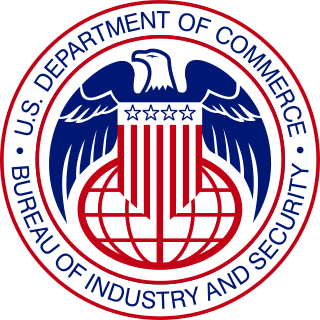
The Bureau of Industry and Security (BIS) is an agency of the United States Department of Commerce that deals with issues involving national security and high technology. A principal goal for the bureau is helping stop the proliferation of weapons of mass destruction, while furthering the growth of United States exports. The Bureau is led by the Under Secretary of Commerce for Industry and Security.
A special economic zone (SEZ) is an area in which the business and trade laws are different from the rest of the country. SEZs are located within a country's national borders, and their aims include increasing trade balance, employment, increased investment, job creation and effective administration. To encourage businesses to set up in the zone, financial policies are introduced. These policies typically encompass investing, taxation, trading, quotas, customs and labour regulations. Additionally, companies may be offered tax holidays, where upon establishing themselves in a zone, they are granted a period of lower taxation.

The Office of the United States Trade Representative (USTR) is an agency of the United States federal government responsible for developing and promoting American trade policy. Part of the Executive Office of the President, it is headed by the U.S. Trade Representative, a Cabinet-level position that serves as the U.S. President's primary advisor, negotiator, and spokesperson on trade matters. USTR has more than two hundred employees, with offices in Geneva, Switzerland, and Brussels, Belgium.

A trade agreement is a wide-ranging taxes, tariff and trade treaty that often includes investment guarantees. It exists when two or more countries agree on terms that help them trade with each other. The most common trade agreements are of the preferential and free trade types, which are concluded in order to reduce tariffs, quotas and other trade restrictions on items traded between the signatories.
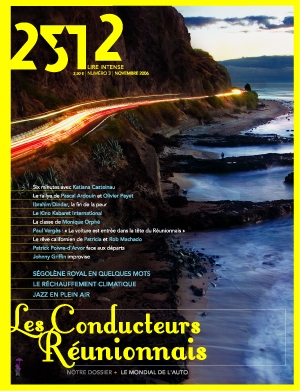
A news magazine is a typed, printed, and published magazine, radio, or television program, usually published weekly, consisting of articles about current events. News magazines generally discuss stories in greater depth than newspapers or newscasts do, and aim to give the consumer an understanding of the important events beyond the basic facts.
EEPC India is the trade and investment promotion organization for the engineering sector that sponsored by the Ministry of Commerce & Industry. Set up in 1955, EEPC India now has a membership base of over 12,000 out of whom 60% are SMEs.
The Australian Trade and Investment Commission, or Austrade, is the Australian Government's trade, investment and education promotion agency which was also given responsibility for tourism policy, programs and research from 2013. Austrade was established under the Australian Trade Commission Act 1985. It is a non-corporate Commonwealth entity under the Public Governance, Performance and Accountability Act 2013, and a statutory agency under the Public Service Act 1999. Austrade is part of the Foreign Affairs and Trade portfolio.
International business refers to the trade of Goods and service goods, services, technology, capital and/or knowledge across national borders and at a global or transnational scale.

Saveur is an online gourmet, food, wine, and travel magazine that publishes essays about various world cuisines. The publication was co-founded by Dorothy Kalins, Michael Grossman, Christopher Hirsheimer, and Colman Andrews. It was started by Meigher Communications in 1994. World Publications bought Saveur and Garden Design in 2000. In October 2020, Bonnier Corporation sold Saveur, along with several other publications, to venture equity group North Equity.
Pakistan Horticulture Development and Export Company (PHDEC) (Urdu: پاکستان باغبانی ترقی و برآمد کمپنی ) is a department of Ministry of Commerce of Pakistan. Pakistan Horticulture Development and Export Company was created due to the enormous potential of Pakistan's horticulture products in the global market. In the absence of a single ministry or institution responsible for development at all levels of the horticulture value chain it was considered important to set up PHDEC to uplift this sector, especially in light of the impact of globalization and World Trade Organization (WTO) regime.
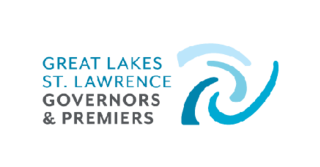
The Conference of Great Lakes and St. Lawrence Governors and Premiers is a North American intergovernmental organization led by the governing chief executives of the Canadian provinces of Ontario and Québec and the US states of Illinois, Indiana, Michigan, Minnesota, New York, Ohio, Pennsylvania, and Wisconsin. Through the organization, they seek to grow the region's economy and protect the Great Lakes. The organization began in 1983 as the Council of Great Lakes Governors to encourage and facilitate environmentally responsible economic development. The Council now serves as secretariat to the governors’ Compact Council and the governor and premiers’ Regional Body.

Pakistan has bilateral and multilateral trade agreements with many nations and international organizations. It is a member of the World Trade Organization, part of the South Asian Free Trade Area agreement and the China–Pakistan Free Trade Agreement. Fluctuating world demand for its exports, domestic political uncertainty, and the impact of occasional droughts on its agricultural production have all contributed to variability in Pakistan's trade deficit. The trade deficit for the fiscal year 2013/14 is $7.743 billion, exports are $10.367 billion in July–November 2013 and imports are $18.110 billion.

The Ministry of Investment, Trade and Industry, abbreviated MITI, is a ministry of the Government of Malaysia that is responsible for international trade, industry, investment, productivity, small and medium enterprise, development finance institution, halal industry, automotive, steel, strategic trade. The ministry has its headquarters located at Menara MITI on Jalan Sultan Haji Ahmad Shah in Kuala Lumpur and the building is also a component of Naza TTDI’s 75.5-acre KL Metropolis, a mixed development that is envisioned to be the International Trade and Exhibition District for Kuala Lumpur. It is one of the three ministries that has not moved to Putrajaya.
Commercial diplomacy is diplomacy that focuses on development of business between two countries. It aims at generating commercial gains in the form of trade and inward and outward investment by means of business and entrepreneurship promotion and facilitation activities in the host country. Commercial diplomacy is pursued with the goal of gaining economic stability, welfare, or competitive advantage.
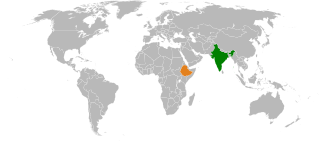
Ethiopia–India relations have existed for almost two millennia. Modern diplomatic relations between India and Ethiopia were established at the level of legations in July 1948, after the independence of India. The relationship was raised to the ambassadorial level in 1952. India maintains an embassy in Addis Ababa and Ethiopia in New Delhi. The two countries have enjoyed close and friendly relations with India supporting Ethiopian developmental efforts while Ethiopia has supported Indian interests such as its claim to a permanent seat on the United Nations Security Council. India and Ethiopia share a common understanding on such issues as cross-border international terrorism, the need and direction for reform of the United Nations, and the importance of action on climate change.










